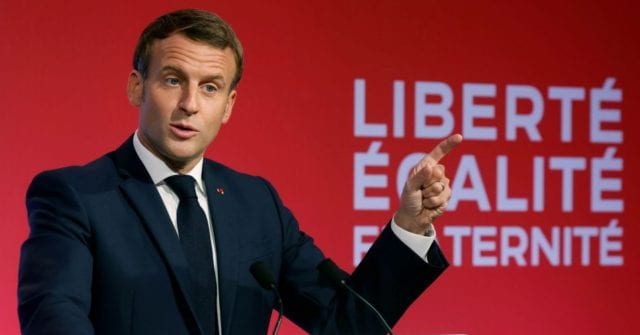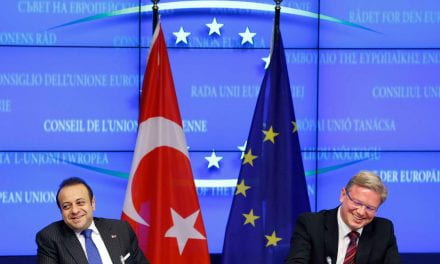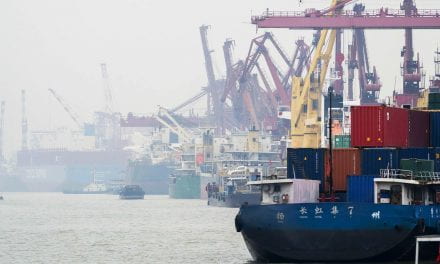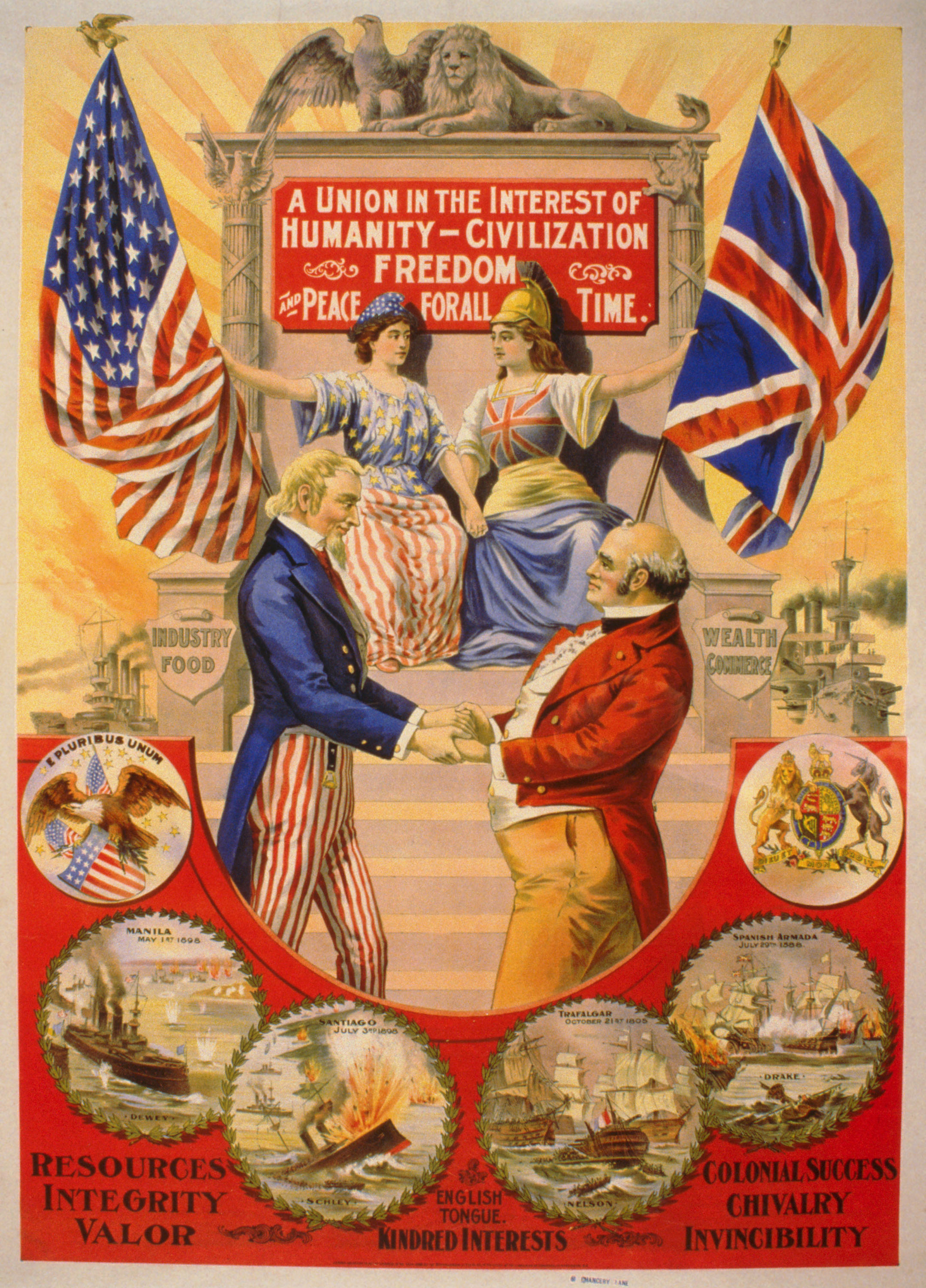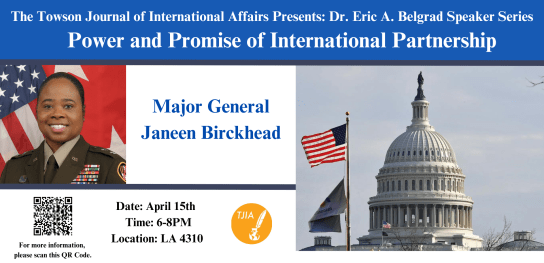After the Brexit referendum and election of Donald Trump in 2016, centrists and leftists revered the electoral success of Emmanuel Macron and his centrist La République En Marche! (En Marche) party in the 2017 French presidential election. Macron seemed to embody the promise of centrist fortification against rising xenophobia, racism and other prejudices in the Western world. Now, four years later, the hero status initially bestowed upon Macron has come under scrutiny due to his recent Islamophobic and quasi-autocratic initiatives.[1] This is not to say that France, or any other developed Western nation, fostered full equality before the events of 2016. On the contrary, the contemporary social, economic and political oppression of French Muslims is a product of France’s long and rather complicated history with Islam (e.g., the Crusades and French Colonialism in the Middle East and Africa). Ergo, this culturally internalized Islamophobia is part of the daily discourse in French society and has been for centuries.[2] That said, the on-going War on Terror has been instrumental in intensifying anti-Muslim sentiments from the government and French society, especially since France is a popular target of Islamic terrorist attacks.
Following the decapitation of French schoolteacher, Samuel Paty, in October 2020 by an Islamic extremist,[3] Macron announced his proposal for harsher anti-terrorism laws, called the Charter of Republican Values. This Charter encompasses a series of policies and procedures that will supposedly protect French secularism and republican values from the threat of “Islamist separatism.[4]” Coined by Macron, Islamist separatism refers to religious sub-societies within France that are prone to radicalization. The Charter has attracted significant controversy, both domestically and internationally, due to highly Islamophobic provisions and the motivations behind them.[5] Although France is justified in implementing stricter anti-terrorism laws, Macron’s anti-separatism plan is more concerned with increasing the marginalization of French Muslims than of actually combatting terrorism.
All things considered, the Charter of Republican Values has been a long-time coming. Over the past decade, France has borne the brunt of terrorism in Western Europe. Nearly 300 French citizens have died from over 50 Islamic terrorist attacks, including the deadly 2015 Paris attacks, the 2019 Lyon bombing, the 2015 Charlie Hebdo shooting, and the 2020 Nice stabbings.[6] Macron inherited the consequences of successive Islamic terrorist attacks and failed integration, and has struggled to reconcile centrist solutions with mounting Islamophobia.[7] Considering how there have been public demands for more aggressive anti-terrorism policies throughout the entirety his presidential tenure, it is surprising that Macon waited this long to reveal the Charter.
On February 16, 2021, the Charter passed through France’s National Assembly—the lower house of French Parliament—and is now under review in the French Senate. This highly controversial bill makes two major pronouncements: (1) it affirms that Islam is a religion, not a political movement and (2) prohibits foreign interference in French-based Muslim entities.[8] By declaring that Islam is a religion rather than a political movement, this charter distinguishes between Islam and Islamism. “Islam” is, in and of itself, just another Abrahamic religion, like Christianity and Judaism. “Islamism” is a totalitarian-style political doctrine that considers Islam and government to be the same—religion is politics and politics is religion (Sharia Law).[9] The prohibition of foreign influence is portrayed as a preventative strategy designed to combat radicalization at the domestic level. It is premised on the notion that French Muslims, including those born and raised in France, may radicalize if influenced by foreign extremists.[10] Consequently, each policy describes the mechanisms by which foreign influence can be reduced.
Provisions in the Charter include restricting homeschooling, criminalizing online hate speech, and strengthening government oversight of religious practice and associations.[11] The logic of homeschooling restrictions assumes that Muslim children will be less susceptible to radicalization if they receive a secular education.[12] Since online hate speech can potentially endanger the lives of individuals by inciting terrorist attacks, the charter will make it punishable by three years in jail and a fine of up to 45,000 euros.[13] In terms of religious practice, the charter will force religious groups to declare foreign donations of 10,000+ euros to the government and grant local authorities the federal right to shut down Mosques accused of suspicious activity—over 70 Mosques were shut down in December 2020.[14] In order to ensure that state funds are not financing terrorist activity, any club that applies for state subsidies will have to sign a contract promising to respect French republican values. Violations of this contract will result in the confiscation of all federal funds.[15] Therefore, the charter will expand government oversight of associations by increasing federal ‘power of the purse.’
Macron’s Charter has had domestic and international repercussions. Domestically, French Muslim are questioning their place in France as the demonization of their religion intensifies under the crackdown.[16] Internationally, protests broke out against Macron in Libya, Bangladesh, Pakistan and the Gaza Strip.[17] Turkish President Recep Tayyip Erdogan, an outspoken critic of Macron, has even called for a boycott of French goods in order to express solidarity with French Muslims.[18] That said, Turkey and other Islamic countries do not necessarily possess the moral high ground on matters of religious freedom. All Islamic nations, even the relatively tolerant ones, impose harsh restrictions on their non-Muslim citizens.[19] Macron’s crackdown is worthy of disdain, but the hypocrisy of Muslim majority nations in this context should not be ignored or discounted.
While the Islamic world reacted to France’s treatment of Muslims in an uproar, the governments of other European and North American countries have been oddly quiet. Even the United Nations and European Union have refrained from commenting on the Charter. British and American news outlets have acted as the primary source of criticism against France in the Western world—something Macron has expressed his contempt for on numerous occasions.[20] Nevertheless, restricting minority rights and increasing government power have explicit autocratic implications,[21] which concerns the political integrity of liberal democracy in the West.
Despite Macron’s insistence that the proposed legislation is intended to reinforce French secularism and republican values, not facilitate Islamophobia, he has made no effort to stop the social marginalization of French Muslims.[22] Systemic racism plays a significant role in radicalization—a fact that Macron has publicly acknowledged yet consistently declines to address. But, instead of improving housing, education and access to healthcare in Muslim majority neighborhoods, Macron is determined to reform an ancient religion with billions of nonviolent followers.[23] Additionally, Macron’s rhetoric towards and regarding Islam is reminiscent of the language used throughout French imperialism and colonialism.[24] Macron publicly denounced Islam as a “religion in crisis all over the world” and declared his intention to create an “Islam of the Enlightenment.[25]” These comments are not only offensive to Muslims, but also quite patronizing because Macron basically called Islam a flawed religion that needs to be reformed by Europeans.
Considering how Macron started off as a liberal centrist icon, his seemingly overnight transformation into an Islamophobic conservative drew suspicion. There is nothing wrong with implementing harsher anti-terrorism policies but, as previously mentioned, Macron’s Charter will not have the desired effect. Even though Macron is undoubtedly aware of this fact, the French political order is shifting to the right as a result of growing demands for stricter practices of law and order.[26] Macron’s rapid embrace of right-wing rhetoric and Islamophobic policies mirrors this development,[27] which has increased speculation about the true motive behind the crackdown. Due to the COVID-19 pandemic, economic downturn and successive Islamic terrorist attacks, Macron has lost the majority of his original electorate.[28] According to Politico polls, Macron currently holds a national 60% disapproval rating and 30% approval rating.[29] With the 2022 election fast approaching, many have accused Macron of pandering to the far-right with the Charter in a desperate attempt to take conservative votes away from Marine Le Pen. Marine Le Pen is the populist leader of the far-right National Front (FN) party.[30] As a radical right-wing politician, Le Pen would be even worse for French Muslims, but that does not excuse or justify Macron’s actions.
Macron’s crackdown is premised on the notion that Islamist separatism presents an inherent threat to French secularism and republican values.[31] This is a false assertation. Islamist separatism presents a threat to national security, but it has no bearing on the political sanctity of French republicanism. Quite oppositely, the government’s response to Islamist separatism is what presents the greatest threat to French secularism and republican values. State secularism can be fortified without oppressing religious minorities, and republican values encompass freedom of religion, privacy rights, and equality. By excluding Muslims from enjoying the rights and privileges of a democratic republic, Macron’s crackdown is endangering everything it promises to defend.
[1] Karen Attiah, “Macron’s Centrist and Tolerant Facade Is Crumbling,” washingtonpost.com, The Washington Post, December 3, 2020, https://www.washingtonpost.com/opinions/2020/12/03/macrons-centrist-tolerant-facade-is-crumbling/
[2] Muhammad Mahmood, “Macron’s Mission to ‘Liberate” Islam: A Long Continuing French Colonial Enterprise?”, countercurrents.org, October 12, 2020, https://countercurrents.org/2020/10/macrons-mission-to-liberate-islam-a-long-continuing-french-colonial-enterprise/
[3] Lucy Williamson, “Samuel Paty: Beheading of Teacher Deepens Divisions over France’s Secular Identity,” bbc.com, BBC World News, October 20, 2020, https://www.bbc.com/news/world-europe-54602171
[4] “France’s Macron vows to fight ‘Islamist Separatism,’” bbc.com, BBC World News, October 3, 2020, https://www.bbc.com/news/world-europe-54383173
[5] Cailey Griffin, “Why Has France’s Islamist Separatism Bill Caused Such Controversy?,” foreignpolicy.com, Foreign Policy, February 23, 2021, https://foreignpolicy.com/2021/02/23/why-france-islamist-separatism-bill-controversy-extremism/.
[6] Gaëlle Fournier, “A Painful Project for France: A Museum on the Ravages of Terrorism,” nytimes.com, The New York Times, March 30, 2021, https://www.nytimes.com/2021/03/30/world/europe/france-terrorism-museum.html.
[7] Emre Ongun, “France’s Demonization of Muslims is Getting Worse,” jacobinmag.com, Jacobin Magazine, October 22, 2020, https://jacobinmag.com/2020/10/france-islamophobia-secularism-macron-marine-le-pen
[8] “France’s Macron Asks Muslim Leaders to Back ‘Republican Values’ Charter,” bbc.com, BBC World News, November 19, 2020, https://www.bbc.com/news/world-europe-55001167
[9] Mehdi Mozaffari, “What Is Islamism? History and Definition of a Concept,” Totalitarian Movements and Political Religions 8, no. 1(2007): 17-33. doi:10.1080/14690760601121622.
[10] Roger Cohen, “France Takes On Islamist Extremism with New Bill,” nytimes.com, The New York Times, December 9, 2020, https://www.nytimes.com/2020/12/09/world/europe/france-islamist-extremism-bill.html?action=click&module=RelatedLinks&pgtype=Article
[11] Alice Tidley, “Here’s All You Need to Know About France’s Controversial Separatism Law,” euronews.com, Euronews, February 16, 2021, https://www.euronews.com/2021/02/16/here-s-what-you-need-to-know-about-france-s-controversial-separatism-law
[12] Williamson, “Samuel Paty: Beheading,” BBC World News, October 20, 2020, https://www.bbc.com/news/world-europe-54602171
[13] Tidley, “France’s Controversial Separatism Law,” Euronews, February 2021, https://www.euronews.com/2021/02/16/here-s-what-you-need-to-know-about-france-s-controversial-separatism-law
[14] Kim Willsher, “France Cracks Down on 76 Mosques Suspected of ‘Separatism,’” theguardian.com, The Guardian, December 3, 2020, https://www.theguardian.com/world/2020/dec/03/france-crackdown-76-mosques-suspected-separatism
[15] Tidley, “France’s Controversial Separatism Law,” Euronews, February 2021, https://www.euronews.com/2021/02/16/here-s-what-you-need-to-know-about-france-s-controversial-separatism-law
[16] Ali Saad, “Islamophobia: Macron’s Desperate Bid for Re-election,” aljazeera.com, Aljazeera, October 28, 2020, https://www.aljazeera.com/opinions/2020/10/28/islamophobia-as-an-integration-strategy-in-france
[17] Lucy Williamson, “France Targets Radical Islamism Amid Turkey Row,” bbc.com, BBC World News, October 27, 2020, https://www.bbc.com/news/world-europe-54692802
[18] “Turkey’s Erdogan Urges French Goods Boycott Amid Islam Row,” bbc.com, BBC World News, October 26, 2020, https://www.bbc.com/news/world-europe-54692485
[19] Doug Bandow, “Religious Persecution Rising: Islam Threatens Religious Minorities, Especially in Middle East,” forbes.com, Forbes, June 15, 2015, https://www.forbes.com/sites/dougbandow/2015/06/15/religious-persecution-rising-islam-threatens-religious-minorities-especially-in-middle-east/?sh=4b7db475572c.
[20] Ben Smith, “The President Vs. The American Media,” nytimes.com, The New York Times, November 15, 2020, https://www.nytimes.com/2020/11/15/business/media/macron-france-terrorism-american-islam.html.
[21] Karen Allen, “French Muslims Fear State Aims to Control Their Faith,” bbc.com, BBC World News, August 23, 2016, https://www.bbc.com/news/world-europe-37155043
[22] John Lichfield, “What Macron Forgot About ‘Islamist Separatism,’” politico.eu, Politico, November 30, 2020, https://www.politico.eu/article/what-macron-forgot-about-islamist-separatism/
[23] McAuley, “France Insists It’s Targeting Islamist Extremism…,” The Washington Post, November 2020, https://www.washingtonpost.com/outlook/macron-france-reform-islam-paty/2020/10/23/f1a0232c-148b-11eb-bc10-40b25382f1be_story.html
[24] Mahmood, “Macron’s Mission to ‘Liberate” Islam”, countercurrents.org, October 2020, https://countercurrents.org/2020/10/macrons-mission-to-liberate-islam-a-long-continuing-french-colonial-enterprise/
[25] James McAuley, “France Insists It’s Targeting Islamist Extremism. But Some Foreign Observers and French Muslims See a Broader Agenda,” washingtonpost.com, The Washington Post, November 14, 2020, https://www.washingtonpost.com/world/europe/france-terrorism-muslims-confusion/2020/11/13/e40332be-2042-11eb-ad53-4c1fda49907d_story.html
[26] Adam Nossiter, “A Hard-Line Minister Proves Indispensable to Macron,” nytimes.com, The New York Times, December 2020, https://www.nytimes.com/2020/12/12/world/europe/macron-france-terrorism-darmanin.html
[27] Attiah, “Macron’s Centrist and Tolerant Facade Is Crumbling,” The Washington Post, December 2020, https://www.washingtonpost.com/opinions/2020/12/03/macrons-centrist-tolerant-facade-is-crumbling/
[28] Saad, “Macron’s Bid for Re-election,” Aljazeera, October 2020, https://www.aljazeera.com/opinions/2020/10/28/islamophobia-as-an-integration-strategy-in-france
[29] “POLITICO Poll of Polls — French Polls, Trends and Election News for France,” politico.eu, Politico, 2021, https://www.politico.eu/europe-poll-of-polls/france/.
[30] Saad, “Macron’s Bid for Re-election,” Aljazeera, October 2020, https://www.aljazeera.com/opinions/2020/10/28/islamophobia-as-an-integration-strategy-in-france
[31] Myriam Francois, “France’s Treatment of Its Muslim Citizens Is the True Measure of Its Republican Values,” time.com, Time Magazine, December 8, 2020, https://time.com/5918657/frances-muslim-citizens-republican-values/

